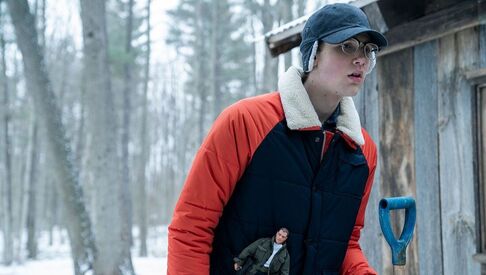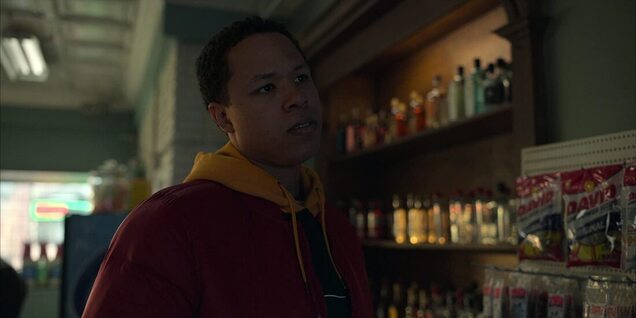 Genuine disability representation, while arguably on the rise, still has a long way to go. Even when it’s present, it has almost never (in my viewing experience) been as diverse as real life... ...What I mean when I talk about genuine disability representation is this: giving the role of the autistic character to an autistic person, the role of a wheelchair using character to an actual wheelchair user, the role of a character with Cerebral Palsy to someone who actually has Cerebral Palsy, and on and on into the void. The statistic of who plays disabled characters is still woefully skewed in the direction of the able-bodied, and unfortunately even when disabled audiences get to see themselves in popular media (film, books, or otherwise) they often fall into tropes that have been built since time immemorial. Need to personify or tip to the audience that someone is evil? Make ‘em disabled. Need a character for sympathy to give the audience warm fuzzy “at least I don’t have it that bad” feelings? Make ‘em disabled. Need to pull some heartstrings and have a miraculous cure in your plot, or a mysterious Oracle figure? Make ‘em disabled. Illness, or any kind of physical difference that is ostensibly irreversible has been linked with the less than human—or at least less than socially accepted—so intimately that to see a disabled character with agency who knows how best to navigate their lives, either with or without the aid of others, is still something of a shock. If it’s well done and not exploitative, I tend to count the representation I find in the Win column, as a disabled consumer. If it feels unformed, half-baked, or like it’s only there as a throw away plot device, into the Trope column it goes. You can probably imagine which one has more points in it right now. Just look around. Even those harmless teen rom-coms with the dramatic makeover scenes turn on the reveal of the girl with glasses secretly having been hot the whole time, sans glasses. Sigh. Horror media seems to find the trope habit one of the hardest to break, although lately I have been pleased to discover some truly incredible disabled heroes of horror. But even the best of them haven’t necessarily always been played by a genuinely disabled person. Until Netflix’s Locke and Key, that is. I feel inclined to clarify a couple of points here: first, I have not yet read Joe Hill’s comic series that the show is based on, though I plan to. So here I am only speaking to the Netflix adaptation. Second, I am by no means saying disabled people are the only people who can play disabled characters…if that were true, we’d have even less of a presence in media than we do now. It is possible for able-bodied people to play something they’re not with care and passion; it just requires doing the work to make sure it’s not played insensitively. Speak to someone with the disability, do the research about it. I am saying that disabled actors of all stripes seem, for the most part, not to be getting the opportunities their able-bodied counterparts have. And that’s where the problem lies. That’s what needs to be fixed. Equal opportunity employment doesn’t seem to apply to Hollywood. What people seem to miss when they pass over true to life casting is the little intricacies that come with having lived with something your entire life. Not overcoming it, per se, but reaching a balance with it. You can fake a way of speaking or walking, but you can’t always fake the humor and awkwardness that comes along. And there is so much joy when disabled audiences can fully identify themselves on screen anyway, and what better way to widen your audience than to show them up there? When I first saw Locke and Key’s Rufus meet Bode, every “this person is disabled!” alarm in my body went off like sirens. So, I did a quick check on the actor who plays him (Coby Bird) and discovered he well and truly is autistic, just like Rufus! Ten points to Locke and Key! The best thing about Rufus’s character is his friendship with Bode, his drive for honesty, and his desire to above all else protect the ones he loves the most. The best thing to do with Rufus’s disability is that no one mentions it. That is, it isn’t made into some major plot point, or device, it’s not a weakness or some Super Crip level strength. It’s just a part of who he is that gets accepted no questions asked, no judgements passed. The idea of trusting your audience to understand and pick up on signals applies to more than you might think. Basically, Rufus is exactly what I want to see more of everywhere. Little did I know, Locke and Key wasn’t finished with me yet. Enter Logan Calloway (Eric Graise). I mentioned at the top of the article that even when disabled people get the opportunities to play themselves in film, they are hardly as diverse as they should be. More often than not, it seems, disabled characters are white. Nigh on never had I seen a disabled POC onscreen before Locke and Key brought me Logan Calloway. Virtually made of charisma, charm, and humor, he’s one of the eldest Locke’s first friends in the new town. He welcomes and covers for Tyler Locke with equal ease and suavity. He seems capable of getting away with anything he wants, by humor and charm alone. He’s also a double amputee with one of my favorite comedic lines in the show. Never once is Logan’s disability explained. He neither needs nor receives a disability origin story. In fact, perhaps the most interesting thing about it is that we see it most through the way the world around him responds. From the quickly assessing glance of the store clerk where Tyler and his friends try to steal beer, to the exchange between Tyler and Logan when Tyler stares a little long and awkwardly as Logan wears shorts when everyone else is bundled up for colder weather (“do my legs look cold to you?”), he takes the looks and the thoughts of those around him in stride, and sets the tone for how to engage with it himself. Instead of anger or discomfort, he aims to set Tyler at ease. It’s obvious he’s been doing such things his entire life. Then the moment is over, and the story moves on. And that is what I want more of. Disabled people in control of their own narratives and perceptions, included in stories without lingering or overthought. If Locke and Key shows us anything, it’s that inclusion and diversity are the easiest things in the world to factor into a story. Audiences take their response cues from the character dynamics, and media is often the filter for how people go out and engage with the world. It’s the truest thing we only acknowledge when something bad happens. It’s time to shift that power to good. By Katelyn Nelson
4 Comments
4/17/2020 08:48:41 am
Experienced locksmiths will even remove broken recommendations from the ignition, without damaging the dashboard. They could actually discover their way about high protection cars, and crack into the innovative system utilized in securing the high-end cars. The country is teeming with locksmith services, which is often availed at a moment's notice. These workers work round the clock, and can be called at any position of the day or night. Certain companies do not even cost more money for giving locksmiths throughout the weekends.
Reply
5/11/2020 04:09:26 pm
My father is a big fan of experimenting with things most especially when it comes to his car. He loves making his life easier by doing those experiments. I don't know how he makes this possible, but the important thing is he was able to do things better in his own ways. I would like to do the same thing as well, but I am not that good when it comes to this. Anyway, thank you for this.
Reply
5/16/2020 04:39:52 am
Sheryl, you are so very welcome. I’m so happy you enjoyed this. Stay positive and stay safe! xo
Reply
5/26/2020 03:45:00 am
Experienced locksmiths will even remove broken recommendations from the ignition, without damaging the dashboard. They could actually discover their way about high protection cars, and crack into the innovative system utilized in securing the high-end cars.
Reply
Leave a Reply. |
Archives
March 2023
|

 RSS Feed
RSS Feed